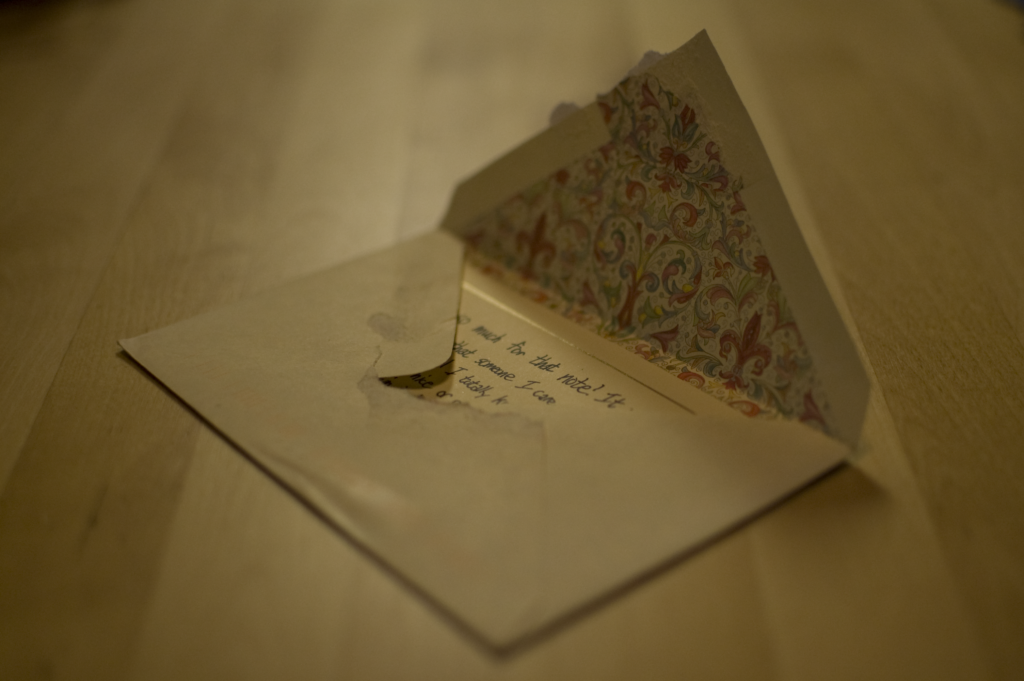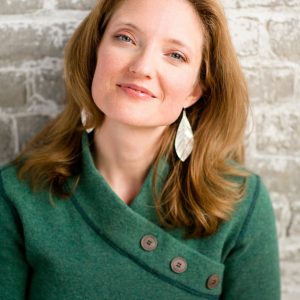I started taking piano lessons from Debbie Jo Traynor when I was 9 years old. We had just moved to Bismarck, North Dakota, and Debbie went to the church where my dad was a Lutheran pastor.
I was drawn to her immediately—her grace, her simple and grounded faith, her raucous laugh and irreverent humor. I took weekly lessons until I graduated from high school. That’s a lot of hours sitting at that bench in her Victorian living room, plunking out tunes and talking.
When I hit my temperamental teens, my mother reported noticeable boosts in my mood after lessons each week. “I don’t know what you’re doing,” she told Debbie, “but she goes in surly and comes out sunny. Keep it up!” The two of them had an ongoing joke: Debbie would introduce my mom to other people by saying, “This is Karen, the biological mother of my child.”
The truth is that Debbie was so much more than my piano teacher. She was—and is—my spiritual mother.
When I was in college and came home during school breaks, I spent hours at her house, sipping spiced tea and talking about love, ideas, God, heartbreak, politics, and purpose. Nothing was out of bounds. As a born seeker who came from a family with clearly delineated boundaries—a world of binaries—this room to wrestle and test and ask and push against borders was life-giving and life-changing.
For 29 years, I have shown up at her door for ordinary conversations, and through those hours I learned lessons that transformed me, that shed light on who I really am, that allowed me to be fully myself. Debbie held me through a devastating depression, the thrills and failures that populate a young adult’s life, finding my soulmate, and the sudden death of my mother two years ago—to name just a few. She has always trusted that I would find my way back to myself, and I always have.
Now, as I’m close to 40 with two young daughters of my own, I have become even more aware and grateful for Debbie and her role in my world. And I also feel more acutely the questions and potential discomforts that arise as I think about my own daughters seeking out a mentor like this—someone to guide them who, frankly, isn’t me.
I wanted to know Debbie’s perspective, so I called her up and talked to her one evening.
I asked if she ever had a mentor like this of her own, and she did: Marge, the mother of her husband’s friend. “I would go and visit Marge, and it was like a breath of fresh air. I had full permission to be who I was, something I didn’t have growing up.”
This gets at prickly things, doesn’t it? Because when we’re talking about making a space for someone to be our spiritual parent,  part of what we’re saying is that our own parents were somehow not giving us that sense of full belonging within the unfiltered expression of our identity. I know that my mother loved me fiercely, but I also know I sometimes curated a version of myself for her in order to sidestep disapproval. Whether she intended it or not, it felt like her acceptance came with conditions. I needed a place to go to be myself, too. Don’t we all?
part of what we’re saying is that our own parents were somehow not giving us that sense of full belonging within the unfiltered expression of our identity. I know that my mother loved me fiercely, but I also know I sometimes curated a version of myself for her in order to sidestep disapproval. Whether she intended it or not, it felt like her acceptance came with conditions. I needed a place to go to be myself, too. Don’t we all?
And if you are a parent, like I now am, there is perhaps something that tightens at the thought: What if my children someday need a place to be unguardedly themselves, and that place is not with me? Can I let them go toward that, knowing in some ways what it says about me?
I want to offer a more pragmatic and grace-full lens on this.
While of course a goal of conscious parenting is to create a clearing for our children to be something other than mini versions of ourselves, I want to say out loud that the parent-child relationship is more complex than what we wish for, even when we’re deliberately working at it.
We have forgotten that it is okay that we as parents can’t be all things to our children. Acknowledging this reality doesn’t mean we’re not doing our best or doing well. It means we’re messy, human, and imperfect. There are elements of who we are that our children are going to push against, and that’s not failure. It’s totally normal.
What if part of our role as loving parents is being willing to hold our kids loosely enough to let them move toward those caring relationships with mentoring adults who can gently fill in the gaps left by our very normal imperfection—without needlessly castigating ourselves or feeling solely possessive of our children’s spiritual development?
Somehow, my mother understood and accepted all this. We were close and talked nearly every day in the last decade of her life. The grief of losing her has been monumental, an ocean whose currents I am still treading. I respected and cherished her, and I believe she returned that. But she also had a very difficult time with my differences. She was a woman of certainties. She bristled at my books, my less orthodox spirituality, my personal and political persuasions. She actively tried to corral me into certain safer emotional and theological geographies.
Still, for some reason, she never once stood in the way or appeared to resent my closeness to Debbie. She was never anything except encouraging. She understood that I needed Debbie.
I am profoundly, unbelievably grateful to my mother for that openness. It has saved and sustained me over many years.
My life is filled with strong, wonderful women. I know now that I can let my daughters go to those heart-mothers to whom they are drawn. More than anything, I want my girls to know that kind of love. It’s too beautiful and too crucial to try and claim that it’s only mine to give. I also hope, if my friends’ kids ever feel connected to me, that I can respond bravely to that sacred invitation. What an intense blessing it is to commit to raising our children all together, not going it alone, but forming both a safety net and a foundation for them to learn and test who they are and who they will be.
 Two weeks after our talk, I got a handwritten letter from Debbie:
Two weeks after our talk, I got a handwritten letter from Debbie:
What needs to be added to our conversation is this: When a young person comes into our lives, it is entirely a gift. It is an exceptional process. It is a tender and rewarding experience when the ripple of love and trust cements souls over time and the gifts flow each to the other.
I wondered if she had any more kids like me, kids who needed her like I did. Not many, she said. Only a few over 35 years of teaching. “There’s Ethan right now. He’s in the 9th grade.” I could feel how much she cares for this person. “I would bet for the rest of my life, that kid’s going to show up at my door.”
And how forever fortunate he is—as I am— that she will answer when he knocks.
Mother and daughter photo by dr_tr via Flickr (cc); letter photo by kylesteed via Flickr (cc)






